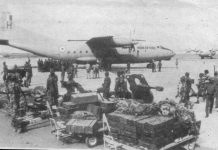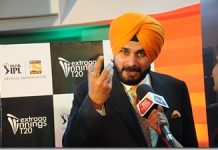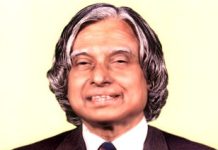Over a million people died in the violent India-Pakistan partition. Here are Top 10 Reasons Why Indian Partition was violent.
Partitions are Often Brutal

West Germany & East Germany had tense relationships surrounding the Berlin Wall. North Korea & South Korea are constantly in a state of a shadow war. North Vietnam & South Vietnam were engaged in a brutal war. In the biggest partition in human history, involving a nation of 500+ million people things were always going to be crazy. The fight among brothers & neighbors are often nastier than fights among strangers.
The Religious Frenzy

The genesis behind partition was the idea that “Hindus and Muslims were two different nations” although the reality was that both these communities were diffused throughout the nation. To enable a religious partition, millions had to be moved. That resulted in anger and violence that kept escalating. Due to their exit business, Britain neither had the energy nor the inclination to police the country. The final result was that the Hindu population in Pakistan was completely decimated and a portion of India’s Muslims had to make a hasty retreat out of India.
The Nature of the Withdrawal
The British government under Clement Attlee made a hasty retreat from India. The destruction of the British economy during World War left it too weak to maintain control over India. The Indian nationalist leaders were too impatient, given the 1945 change of power from the conservatives (die hard supporters of colonialism) to the labor party (more liberal & freedom-friendly). This hasty withdrawal left the administration with little plans to manage the partition in a nonviolent way. The picture above shows British troops leaving India.
Whipping up the Frenzy

By the start of Second World War, Muslim League of India had made it clear that they wanted to divide India into two nations. However, the Congress Party never took them seriously enough. By 1946, MA Jinnah realized that Congress was never going to let partition happen. He decided to enforce partition. This led to the Direct Action Day on 16th Agust 1946- one of the most brutal days for India’s Hindus. More than 4000 Hindus died in less than 72 hours. Continuous whipping of frenzy left both sides on edge in the days leading to the partition.
Ambiguous Boundary

To draw the boundary, Lord Mountbatten brought Cyril Radcliffe, who had never been to India before and knew nothing about it. Although he did a good job given the situation, the partition left a lot of howlers. Lahore was surrounded by Hindu villages that should have gone to India, but went to Pakistan due. Amritsar was surrounded by Muslim villages, but went to India due to the Golden temple. Such controversial moves, left millions on the wrong side of the border.
The Unfinished Business

This is what Muhammad Ali Jinnah imagined his Pakistan to look like. Jinnah and his followers had a big dream for Pakistan. Given that Muslims were just 25% of India, his ask for 50% India’s land was considered ludicrous. Not only that, his plan would have left India as a completely unsustainable nation. Unsurprisingly, Congress fought back for a more reasonable bargain. When the borders were finally drawn, Jinnah complained that he got a “moth eaten Pakistan” and was pissed. Indians were pissed that he got away with bisecting the country. The Hindus saw India as the one without partition. There was a huge difference in how both sides saw their respective nations. Thus, there was high tension on both sides on the eve of partition.
7. Leaving Behind Everything They Owned

What would you do if somebody came to your home and said this? You would demand a reason, demand an explanation. If the explanation is “Because we drew a line and you aren’t supposed to be here”, you have the following options:
1. Move to the new location and start all over again. You own nothing, your kids have no privileges, you don’t even have a shelter. Things will be bad.
2. Fight for your space.
A lot of people chose to fight for their property in Pakistan, they were not willing to start all over again and the stakes were too high. This resulted in a civil war in the state of Pakistan.
Thousands of Sikhs and Hindus were murdered.
Revenge

The murder of Hindus and Sikhs in Pakistan enraged their relatives in the new India. They were revenged by their relatives by murdering Muslims in India. Tens of thousands of Muslims were butchered. This resulted in further revenge, resulting in deaths of lakhs of Hindus, Sikhs and Muslims. When a train full of dead Hindus and Sikhs came to India, a train full of dead Muslims went to Pakistan. It was inevitable actually, the way the partition was done. The aim was that the societies may benefit, but the cost of the benefit of both societies was paid by individuals, which Jinnah and Nehru failed to see. It was a heartless decision.
Note: Also see 1971 Mass Rap’e : Untold History of Bangladesh Liberation War. Wars like this always lead to further violence.
Other Reasons

Some extremist groups took advantage of these situations and started attacking people belonging to the other religions. The victims in retaliation or as revenge attacked those who had nothing to do with rioting but were of other religion.
Some Hindus and Sikhs blamed Muslims for breaking the country and now that they had their land then the Muslims living in India had to go out of India and they killed them if they refused. Muslims in Pakistan did the same to Sikhs and Hindus in Pakistan.
Some people looted, killed and raped irrespective of religion and initiated riots.
Weather

The 1947 monsoon was under par in Western India, while it was fairly ok in eastern India. This left a lot of western farmers (most of India depended on agriculture) in pain and anger. The partition gave them a chance to vent their anger and blame the pains on the opposition. This pent up anger kept escalating the violence.

































